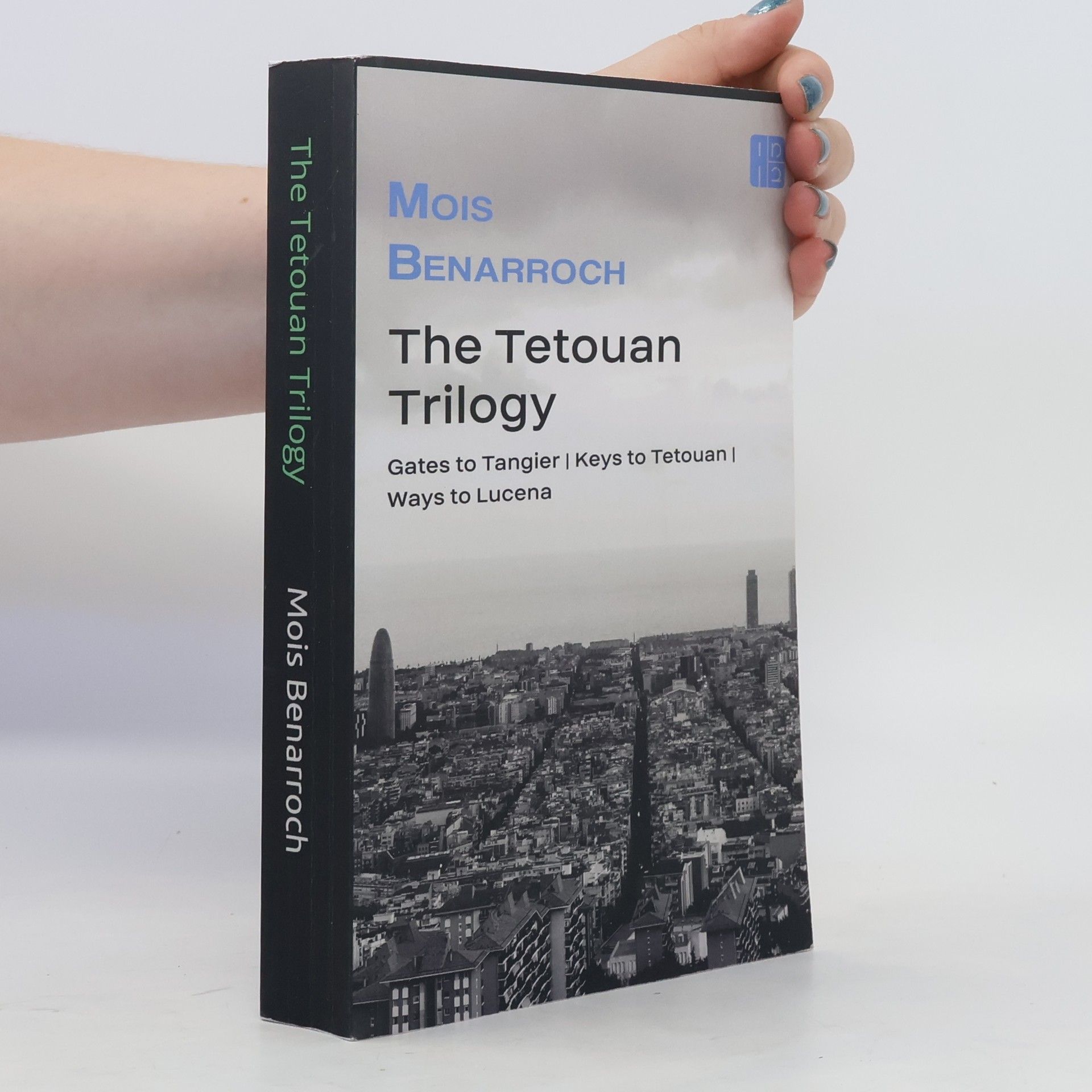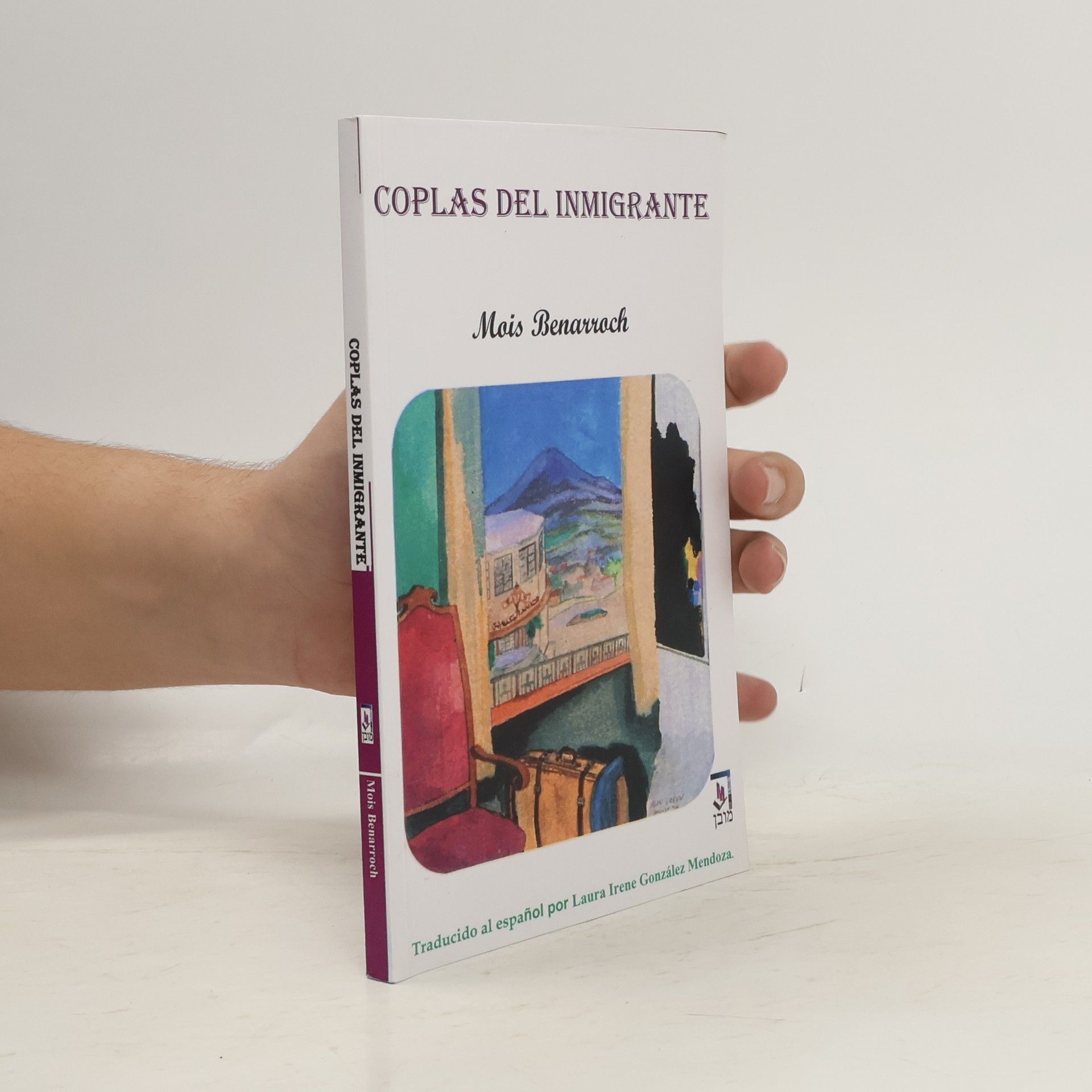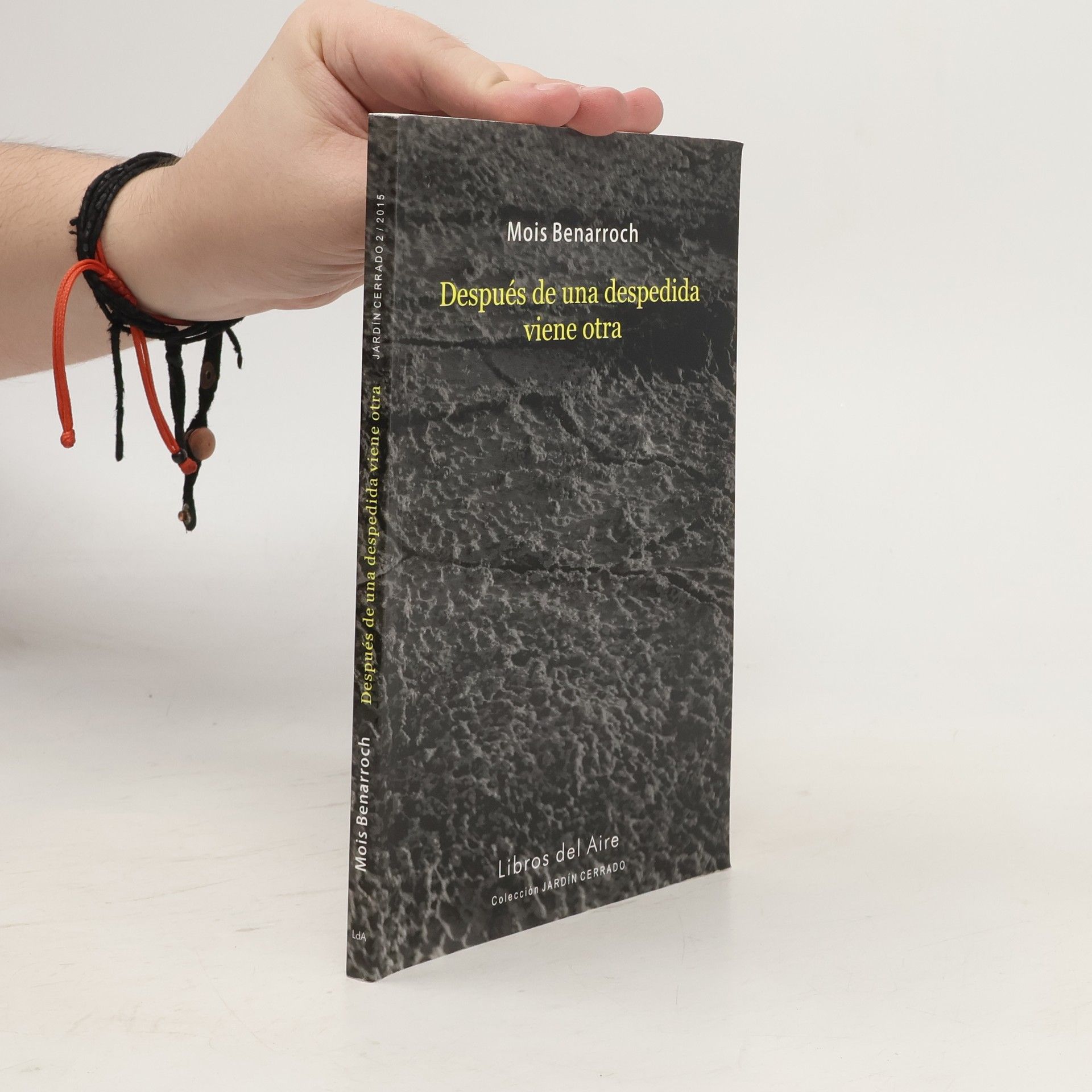Después de una despedida viene otra
- 115 páginas
- 5 horas de lectura
Mois Benarroch es una de las figuras más enigmáticas de la literatura mundial contemporánea. Su obra, arraigada en los paisajes y la historia de Marruecos, se adentra en el universo de la literatura judía y la vida en Jerusalén. Como autor prolífico en varios idiomas, explora constantemente nuevas vías literarias, entrelazando temas de compasión, lucha social y la condición humana. Sus novelas son viajes a través del tiempo y el espacio, explorando relaciones complejas con una visión que siempre deja espacio para la esperanza.






"Mois Benarroch es el mejor escritor mediterraneo Sefardí de Israel." Prof. Habiba Pdaya. Haaretz, sept. 2020. En este poemario, Mois Benarroch hace un retrato muy personal de la migración y del arte de vivir entre dos mundos sin pertenecer a ninguno. Incluye su poema más celebrado, que es el que da nombre a este libro.Mois Benarroch nace en 1959 en Tetuán, Marruecos. Desde 1972 reside en Jerusalen, ciudad en la que ha escrito 30 libros de novela y poesía en hebreo y en castellano. Los más conocidos En las puertas de Tánger, Mar de sefarad, Llaves de Tetuán, Coplas del inmigrante, Amor y exilios y Lucena. 60 traducciones de sus libros han sido publicadas en italiano, inglés, portugues, español, árabe, francés y alemán.Ha sido galardonado con el premio Amijay y el premio Levi Eshkol.
Renowned for his multilingual poetry, Benarroch captures the essence of the world through his verses. Critics like Julia Uceda and Jose Luis Garcia Martin recognize his work as both a profound reflection of his experiences and a historical document. Starting his poetic journey at 15, he initially wrote in English before embracing his native Spanish and later Hebrew. With six poetry collections published in Israel, his unique voice resonates across cultures and languages, making him a significant figure in contemporary poetry.
Mois Benarroch stands out as a significant figure in Israeli literature, particularly among Mediterranean Sephardi writers. His work reflects the rich cultural heritage and experiences of the Sephardi community, showcasing themes of identity, belonging, and the complexities of life in Israel. Through his writing, he brings a unique voice and perspective that enriches the literary landscape.
Exploring the nature of memory, the narrator grapples with the blurred lines between personal recollections and those influenced by others. As he interacts with the intimate memories of people around him, he begins to feel like a thief of these experiences, leading to a profound realization: distinguishing his own memories from those of others becomes increasingly difficult. This narrative delves into the collective essence of human experience, suggesting that our memories are not solely our own but are intertwined with the lives of others, creating a shared autobiography of humanity.
Exploring the fluidity of time and reality, the narrative intertwines travel with elements of fantasy and memory. It delves into themes of loss and regret, illustrating how a seemingly insignificant item can lead to profound emotional turmoil. The journey navigates the delicate balance between the ordinary and the surreal, capturing the essence of human experience and the madness that can arise from attachment to the past.
Mois Benarroch is recognized for his exceptional literary contributions, earning praise from notable figures like Klaus Gerken, editor of Ygdrasil. The book showcases Benarroch's unique storytelling ability and depth, positioning him as a contender for prestigious accolades such as the Nobel Prize. Through insightful narratives, readers are invited to explore the richness of his work and its impact on contemporary literature.
Exploring themes of love and identity, the narrative centers on a surreal premise where a writer is given the chance to create a person, leading to the emergence of THE OTHER. Mois and Raquel, who meet in their forties while grappling with disillusionment in their lives, discover a profound connection through their shared roots in the now-defunct city of Hebrew Tetouan. Their evolving relationship, marked by essential conversations, reveals a deep bond that transcends distance and time, as they seek to voice their intertwined histories.
An unexpected encounter at a bus station leads to an adulterous relationship that blurs the lines of identity and time. The story unfolds on a hijacked bus, creating a stark division between the privileged front passengers and the oppressed back passengers, exploring themes of power and complicity. With layers of narrative that intertwine past and future, the protagonist undergoes a transformation, culminating in a profound conclusion. This thought-provoking novel challenges conventional storytelling and delves into the complexities of human experience.
The narrative explores the journey of an ancient man nearing his 1,000th birthday as he prepares his descendant for a millennium-spanning adventure. Set against the backdrop of the Jewish city of Lucena, the story intertwines historical elements like Sephardi Jewry and the Inquisition with contemporary themes of identity and family conflict. The young protagonist grapples with his place in the world while writing science fiction, connecting past and present in a humorous and thought-provoking manner reminiscent of Kurt Vonnegut Jr.